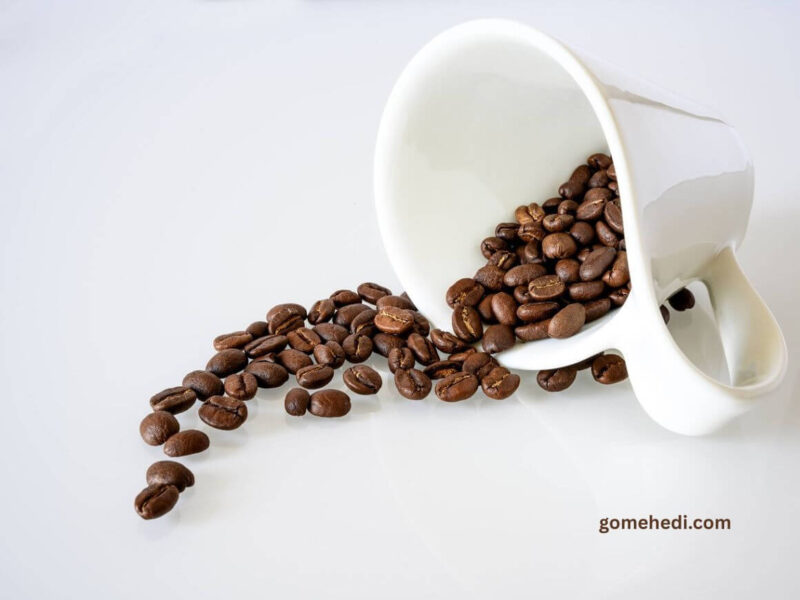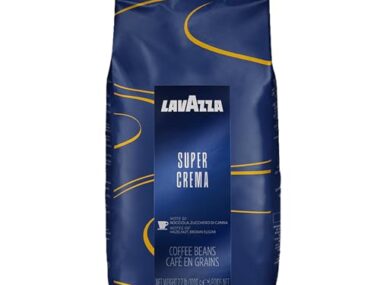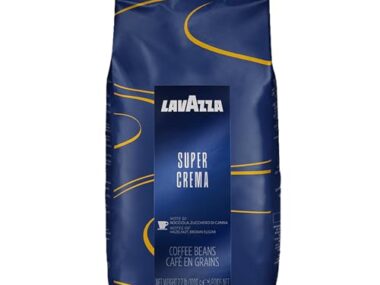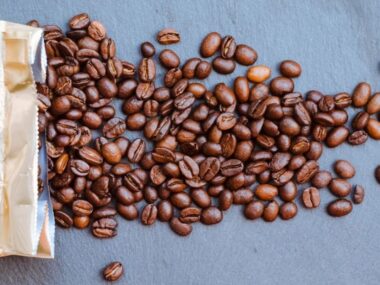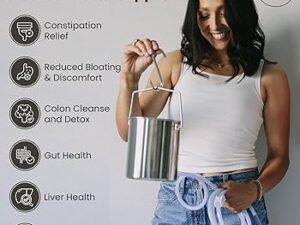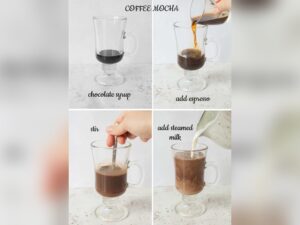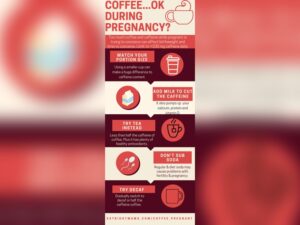Are you craving the taste of coffee without the caffeine buzz? Whether you’re sensitive or just want a calmer brew, it’s worth knowing which coffee beans have the least caffeine. We’ll help you discover the best low-caffeine choices that balance flavor, aroma, and comfort in every cup.
Many coffee enthusiasts are on the hunt for beans that deliver rich flavor without the buzz. But which coffee beans have the least caffeine? Imagine sipping your morning brew with peace of mind, knowing it perfectly aligns with your lifestyle needs.
In this guide, you’ll uncover the secrets behind low-caffeine coffee beans and learn how to choose the best ones for your taste buds. Get ready to transform your coffee experience and enjoy every sip with ease.
Caffeine Basics
Caffeine is a natural stimulant found in coffee beans. It affects the brain and helps us feel more awake. Different beans have different caffeine levels. Knowing these differences can help you choose the right coffee for you.
Arabica Vs Robusta
Arabica and Robusta are the most common coffee beans. Arabica beans contain less caffeine than Robusta beans. They are smoother and less bitter. Robusta beans are stronger and more bitter, with more caffeine.
Decaf Coffee Beans
Decaf coffee is made from beans with almost no caffeine. The process removes caffeine but keeps the flavor. Many people choose decaf for its taste without the caffeine kick.
Light Roast Vs Dark Roast
Roasting affects caffeine levels. Light roast beans have slightly more caffeine than dark roast. The roasting process reduces caffeine. But both have less caffeine than Robusta beans.
Single Origin Beans
Single origin beans come from one place. Some regions produce beans with less caffeine. Ethiopian beans are known for lower caffeine levels. They have unique flavors and aromas.
Choosing The Right Coffee
Choosing coffee depends on your caffeine needs. Arabica or decaf are good for less caffeine. Robusta is better for a strong caffeine kick. Experiment to find your favorite.

Credit: www.instacart.com
Decaffeinated Beans
Many coffee lovers crave the rich aroma and bold taste of coffee. But some people want to limit their caffeine intake. This is where decaffeinated beans come into play. These beans offer a way to enjoy coffee without the jitters. Decaffeinated coffee beans have been processed to remove most of the caffeine. They are a popular choice for those sensitive to caffeine or who want to enjoy coffee in the evening. Understanding which coffee beans have the least caffeine can help make informed choices. Let’s explore the world of decaffeinated coffee beans and how they are processed.
Decaf Process
The decaf process involves several steps to remove caffeine from coffee beans. Each method aims to keep the flavor intact while reducing caffeine levels.
- Swiss Water Process: This method uses water to extract caffeine. No chemicals are involved, making it an organic choice. The beans are soaked in hot water, allowing caffeine to dissolve.
- Direct Solvent Process: Beans are steamed, then rinsed with a solvent like ethyl acetate. This helps strip away caffeine. The beans are then steamed again to remove any residual solvent.
- Carbon Dioxide Process: Uses liquid CO2 to dissolve caffeine. CO2 is circulated through the beans at high pressure. This method is efficient and retains flavor well.
Each method has its benefits and drawbacks. Choosing the right one depends on personal preferences. Some people prefer no chemicals, while others focus on flavor retention.
Popular Decaf Varieties
Several decaf coffee bean varieties are popular among coffee lovers. These beans offer a range of flavors and aromas.
| Variety | Flavor Profile |
|---|---|
| Colombian Decaf | Rich and smooth, with a hint of chocolate. |
| Sumatra Decaf | Earthy and full-bodied, with a spicy aroma. |
| Ethiopian Decaf | Fruity and floral, with a bright finish. |
Choosing the right variety depends on personal taste preferences. Colombian decaf is ideal for those who enjoy chocolatey notes. Sumatra offers a more robust and spicy experience. Ethiopian is perfect for those who appreciate fruity and floral flavors. Exploring different varieties can lead to discovering new favorites.
Low-caffeine Beans
Coffee lovers often find themselves curious about the caffeine content in their favorite brew. Some prefer a bold, energizing cup, while others seek a milder experience. Understanding which coffee beans have the least caffeine can help in choosing the right coffee for your needs. Low-caffeine beans are a great option for those sensitive to caffeine or looking to reduce their intake without compromising on flavor. In this blog, we’ll explore the differences between Arabica and Robusta beans, and highlight the best low-caffeine varieties available.
Arabica Vs. Robusta
Coffee enthusiasts often debate the merits of Arabica and Robusta beans. Arabica beans are generally known for their smooth and mild flavor. They contain less caffeine compared to Robusta, making them a preferred choice for those who are sensitive to caffeine. Typically, Arabica beans have about 0.8% to 1.4% caffeine content.
On the other hand, Robusta beans are popular for their strong and bitter taste. They have higher caffeine levels, ranging from 1.7% to 4%. This makes Robusta beans a favorite for those who need a stronger kick from their coffee.
Here’s a quick comparison:
| Bean Type | Caffeine Content | Flavor Profile |
|---|---|---|
| Arabica | 0.8% – 1.4% | Smooth, Mild |
| Robusta | 1.7% – 4% | Strong, Bitter |
Choosing between these two depends on your preference for caffeine content and flavor. Arabica beans are ideal for those who prefer less caffeine.
Best Low-caffeine Varieties
For coffee drinkers seeking low-caffeine options, several varieties offer a delightful taste without the jittery effects. Coffea Arabica is the most popular choice due to its lower caffeine levels and smooth flavor. Some specific varieties within Arabica offer an even milder caffeine experience.
Consider these top low-caffeine coffee varieties:
- Laurina: Known for its unique taste and low caffeine. It contains about 0.3% caffeine, significantly lower than regular Arabica.
- Arusha: Offers a balanced flavor with minimal caffeine content. Perfect for a gentle coffee experience.
- Bourbon: Renowned for its sweet and complex flavor profile, with lower caffeine compared to other Arabica beans.
These varieties are excellent for those looking to enjoy coffee without the overwhelming caffeine. They provide a rich taste while ensuring a calm and relaxed experience. Exploring these options can help find the perfect cup that suits your caffeine sensitivity and flavor preference.
Brewing Methods
Coffee lovers often wonder which coffee beans have the least caffeine. The type of coffee bean and the brewing method can affect the caffeine content. It’s important to know the different types of coffee beans and how they are brewed. This helps people find the perfect coffee for their needs. Whether it’s a morning pick-me-up or a gentle evening sip, understanding caffeine levels is key. Let’s explore how brewing methods impact caffeine levels and discover recommendations for a low caffeine brew.
Impact On Caffeine Levels
The caffeine level in coffee depends on several factors. These include the type of coffee bean, how it is roasted, and the brewing method. Arabica beans are generally lower in caffeine compared to Robusta beans. How coffee is brewed can also affect caffeine content. Here are some factors that influence caffeine levels:
- Bean type: Arabica beans have less caffeine than Robusta beans.
- Roasting level: Dark roast coffee tends to have less caffeine than light roast.
- Brewing time: Longer brewing times can increase caffeine levels.
- Water temperature: Hotter water extracts more caffeine.
Different brewing methods extract caffeine differently. Espresso has a higher concentration of caffeine per ounce. French press uses a longer brewing time, leading to more caffeine. Drip coffee varies based on grind size and water temperature. Understanding these methods helps in choosing the right brew.
Recommendations For Low Caffeine Brew
For those seeking coffee with less caffeine, certain choices can help. Selecting Arabica beans is a good starting point. These beans naturally have less caffeine. Opting for a dark roast can also reduce caffeine levels. Consider the brewing method carefully:
- Cold brew: This method extracts less caffeine due to cooler water temperature.
- Pour-over: Adjust grind size and water temperature for lower caffeine.
For the lowest caffeine, try decaf coffee. This type is specially processed to remove most caffeine. Always check labels for caffeine content when buying coffee. This ensures you get the brew that matches your preference. A bit of experimentation can lead to the perfect cup.
Health Considerations
Many coffee lovers seek the perfect brew for their morning ritual. But for some, high caffeine levels can be a concern. Understanding which coffee beans have the least caffeine can help make healthier choices. Health considerations play a crucial role in this decision. By choosing coffee with less caffeine, individuals can enjoy their beverage without jitters. Different types of beans have varying caffeine content. It’s important to know these differences for informed choices.
Benefits Of Low Caffeine
Choosing coffee beans with low caffeine has several benefits for health. Firstly, it reduces the risk of experiencing anxiety and nervousness. High caffeine can sometimes lead to restlessness. By opting for low caffeine, one can enjoy coffee without these side effects.
Moreover, less caffeine can help improve sleep patterns. Many people face sleep issues due to caffeine. Low caffeine options can minimize these disruptions. Additionally, it can be beneficial for those with heart conditions. Caffeine can sometimes increase heart rate, which is not ideal for everyone.
Here are some specific benefits of consuming low caffeine coffee:
- Better sleep quality due to reduced caffeine intake.
- Lower anxiety levels making it a calming choice.
- Heart-friendly for individuals with cardiovascular concerns.
- Fewer digestive issues as caffeine can irritate the stomach.
Potential Drawbacks
While low caffeine coffee has benefits, there are potential drawbacks too. Some coffee enthusiasts might miss the energy boost that caffeine provides. This can be a downside for those who rely on coffee to start their day.
Furthermore, the flavor profile of low caffeine beans might differ. Some people feel that caffeine contributes to the taste and aroma of coffee. Therefore, reducing caffeine might alter their coffee experience.
Let’s consider a few potential drawbacks:
| Drawback | Description |
|---|---|
| Reduced Energy | May not provide the usual energy boost. |
| Flavor Changes | Potentially different taste and aroma. |
| Habit Changes | Adjustment needed for regular coffee drinkers. |
Ultimately, the choice between low and high caffeine coffee depends on personal preferences and health needs.
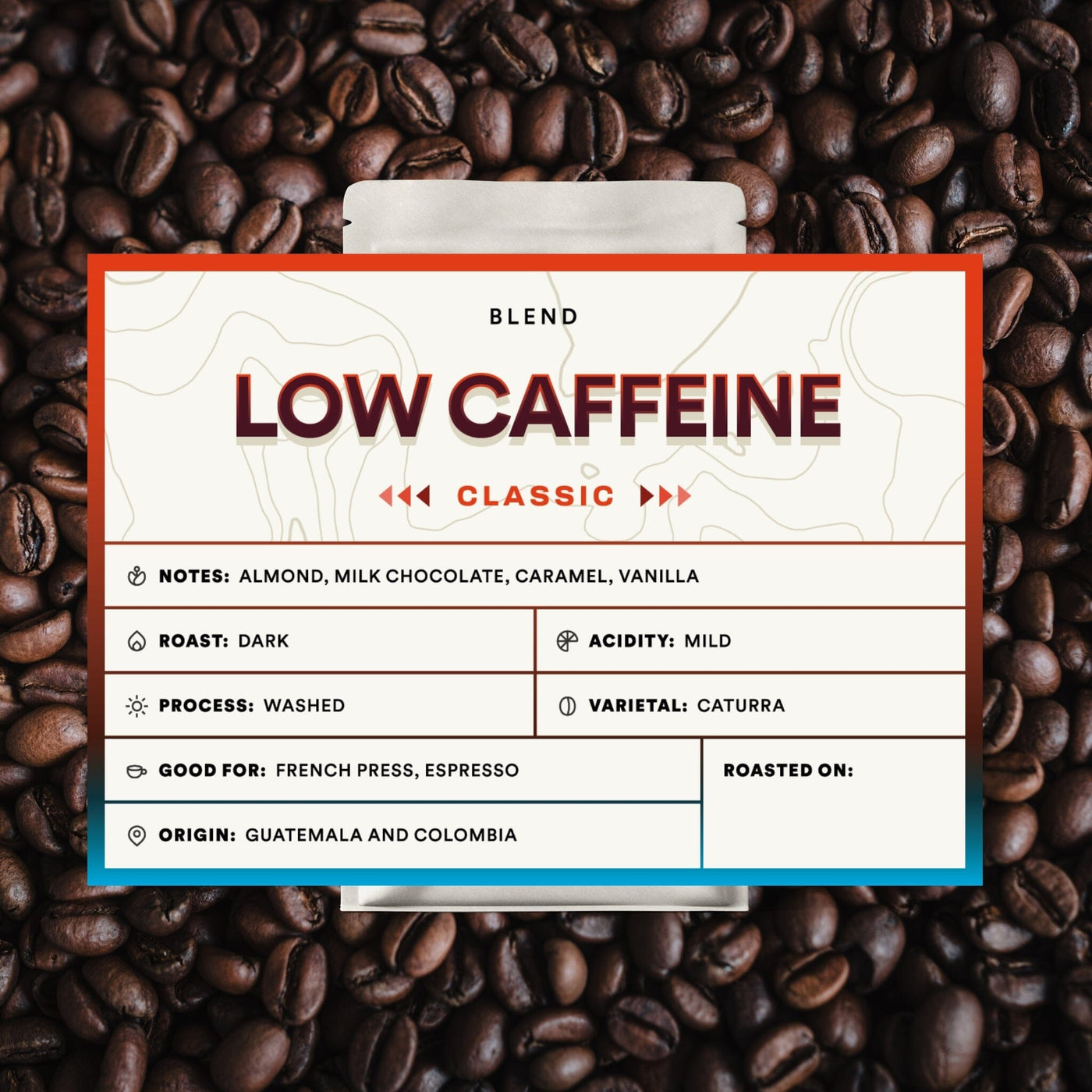
Credit: bhbcoffee.com
Tasting Notes
When choosing coffee beans, caffeine content is a key factor. Some coffee lovers prefer a brew with less caffeine for various reasons, including sensitivity or simply wanting to enjoy a cup without the jitters. Finding coffee beans with lower caffeine levels can be challenging, as it often depends on the type of bean and how it’s processed. Tasting notes play a significant role in identifying these beans and understanding their unique flavors.
Flavor Profiles
Different coffee beans offer unique flavor profiles. Arabica beans are known for their mild taste and lower caffeine content compared to Robusta. Arabica beans typically have subtle flavors such as fruitiness and floral notes. Robusta beans, on the other hand, have a stronger, bitter taste with higher caffeine levels. Arabica’s flavor is more refined, making it a favorite among coffee connoisseurs.
Decaffeinated coffee beans provide another option for those seeking less caffeine. During the decaffeination process, caffeine is removed while maintaining the bean’s original flavors. This results in a smoother taste with less bitterness. Even though these beans have minimal caffeine, they often mimic the flavors of their caffeinated counterparts.
Flavor profiles can be categorized as follows:
- Arabica: Fruity, floral, mild.
- Robusta: Strong, bitter, earthy.
- Decaffeinated: Smooth, less bitter, retains original flavors.
Pairing Suggestions
Pairing coffee with food enhances the drinking experience. Arabica coffee’s mild flavors pair well with delicate pastries and light desserts. Think of a croissant or a slice of sponge cake. These foods complement Arabica’s subtle notes without overpowering them.
Robusta coffee, with its strong taste, pairs well with rich, savory foods. Dark chocolate or a slice of cheesecake can balance Robusta’s bitterness. This pairing highlights the coffee’s robust character and creates a satisfying contrast.
Decaffeinated coffee offers versatile pairing options. Its smooth taste makes it suitable with both sweet and savory dishes. Enjoy it with a fresh fruit salad or a savory quiche. The lack of bitterness in decaf allows the flavors of the food to shine.
Consider these pairing suggestions:
- Arabica: Croissant, sponge cake, light desserts.
- Robusta: Dark chocolate, cheesecake, savory dishes.
- Decaffeinated: Fruit salad, quiche, versatile options.
Conclusion On Caffeine Choices
Coffee lovers often wonder about the caffeine content in their favorite beans. Different types of coffee beans contain different amounts of caffeine. Understanding these differences can help you make informed choices. Whether you want a strong kick or a gentle boost, knowing the caffeine levels can guide your coffee selection.
Arabica Beans
Arabica beans are popular for their smooth flavor. They generally have less caffeine compared to other types. This makes them a great choice for those who prefer a milder coffee experience. Despite the lower caffeine, their taste remains rich and enjoyable.
Robusta Beans
Robusta beans contain more caffeine than Arabica. This gives them a stronger, more bitter taste. Robusta is often used in espresso blends for a powerful caffeine punch. These beans are perfect for those seeking a robust coffee flavor.
Liberica Beans
Liberica beans are less common but offer a unique taste. They have a moderate amount of caffeine. Their flavor is distinct, with fruity and floral notes. This makes Liberica a special choice for adventurous coffee drinkers.
Excelsa Beans
Excelsa beans have a unique profile. Their caffeine content is similar to Liberica. They add depth to coffee blends with their tart and fruity flavors. Excelsa beans are ideal for those who enjoy complex coffee tastes.
Decaf Options
Decaf coffee is made by removing most of the caffeine from the beans. It’s a perfect option for those who want coffee without the jitters. The taste remains close to regular coffee, offering a comforting experience without the caffeine.
| Type of Bean | Caffeine Content |
|---|---|
| Arabica | Low |
| Robusta | High |
| Liberica | Moderate |
| Excelsa | Moderate |
| Decaf | Very Low |

Credit: www.reddit.com
Frequently Asked Questions
Which Coffee Beans Have The Lowest Caffeine?
Arabica coffee beans typically have the lowest caffeine content. They contain about half the caffeine compared to Robusta beans. Opt for Arabica if you prefer a milder coffee experience. Choosing light roast Arabica can slightly reduce caffeine levels further. Always check labels for specific caffeine content information.
Which Brew Of Coffee Has The Least Caffeine?
Decaf coffee has the least caffeine among coffee options. It typically contains about 2-5 mg of caffeine per cup. Choose decaf if you want to minimize caffeine intake while still enjoying coffee’s rich flavor.
What Coffee Drink Has The Lowest Caffeine?
Decaffeinated coffee has the lowest caffeine content. It contains about 2-5 mg per 8-ounce serving. Espresso shots also have low caffeine, with around 63 mg per shot. Opt for decaf if you want minimal caffeine intake.
Which Coffee Roast Has The Least Caffeine?
Dark roast coffee typically has the least caffeine compared to lighter roasts. The roasting process reduces caffeine levels. Choose dark roast for a smoother taste and less caffeine. Enjoy a rich flavor without the jitters of high caffeine content. Perfect for those preferring less caffeine in their coffee.
Conclusion
Choosing coffee beans with less caffeine is simple. Opt for decaf or Arabica beans. These options offer a milder caffeine hit. Perfect for those sensitive to caffeine. Enjoy your cup without jitters or sleepless nights. It’s all about finding the right balance.
Savor the rich flavors without worry. Explore different brands and blends. Taste the difference with lower caffeine beans. Coffee can be delicious and gentle. Experiment with brewing methods too. Adjust strength to your liking. Your perfect cup awaits. Enjoy the journey of discovery.
Happy sipping!
